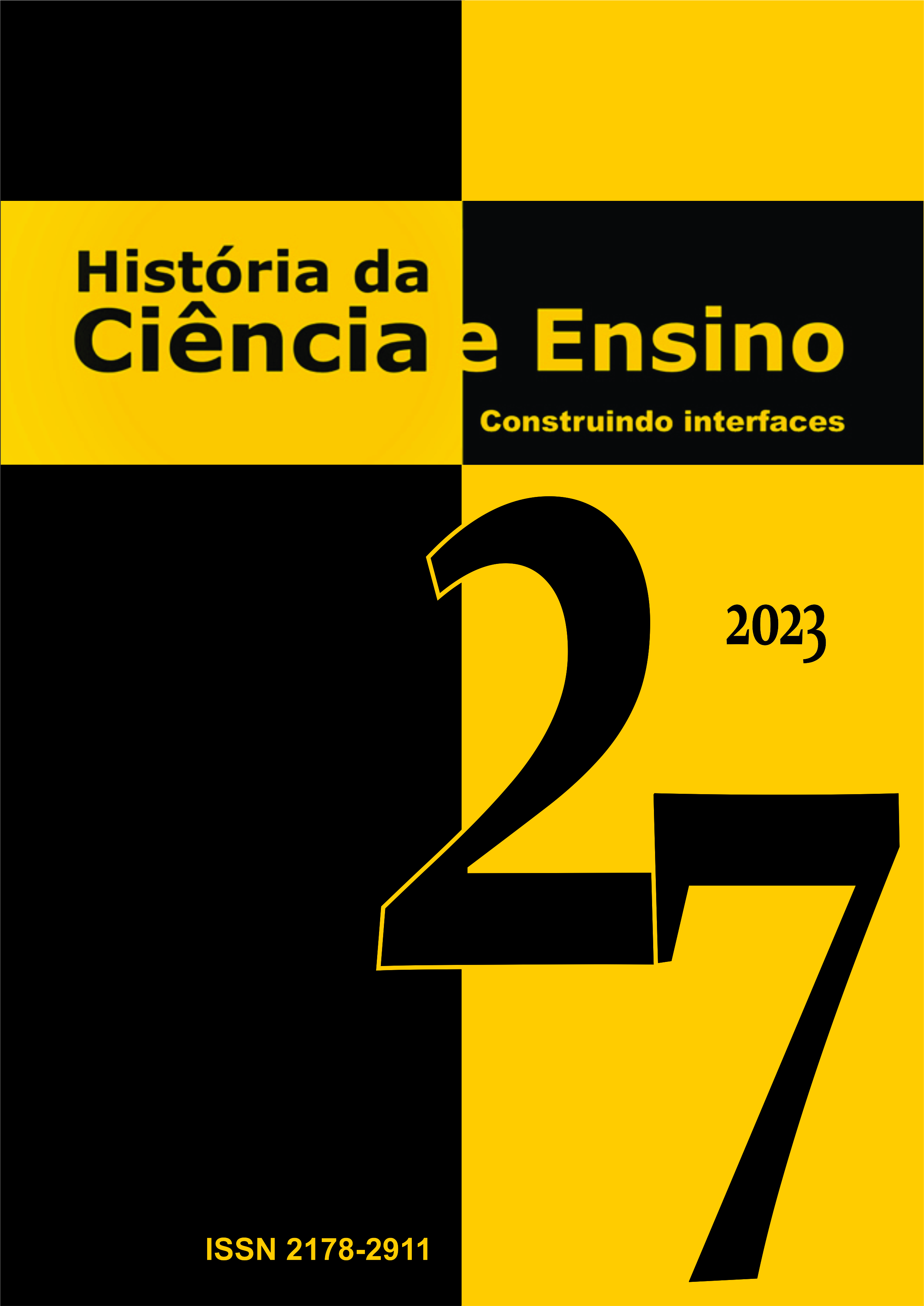O Congresso de Karlsruhe - pressupostos e controvérsias
DOI:
https://doi.org/10.23925/2178-2911.2023v27p22-54Resumo
Resumo
Este artigo apresenta um resgate de parte dos assuntos que foram discutidos no Congresso de Karlsruhe, encontro de químicos ocorrido entre os dias 3 e 5 de setembro de 1860, além de apresentar algo de seus pressupostos. Trata-se de uma leitura histórica fundamentada nos textos originais de alguns dos participantes do evento e numa das poucas atas das reuniões que chegaram até nós. Naquele ano, a Química ainda não havia consolidado seus alicerces e não havia acordo sobre como se determinar os pesos atômicos dos elementos e dos compostos. Além disso, e talvez mais importante, havia um acalorado debate entre os químicos atomistas e os equivalentistas. Face a essa e a outras complicações, os químicos Kekulé, Wurtz e Weltzien, todos eles atomistas, decidiram organizar o que viria a ser o primeiro congresso internacional de Química, em Karlsruhe, cidade alemã situada na Floresta Negra. O evento tinha objetivos pretensiosos, mas pouco se alcançou de concreto nas discussões. As opiniões eram bastante divergentes e não se entrou em acordo sequer sobre o que decidir por meio de votos nas reuniões. Ao seu término, um dos participantes, Angelo Pavesi, distribuiu aos demais um texto das aulas de Stanislao Cannizzaro, ministradas na Universidade de Genova. O texto resgatava a hipótese de Avogadro-Ampère sobre as quantidades de partículas num dado volume de um gás, além de discutir e estabelecer claras diferenças entre o que seriam átomos e moléculas. O texto de Cannizzaro descortinou os grandes avanços que a Química experimentou logo após, reforçando os alicerces teóricos dessa Ciência.
Palavras-chave: Congresso de Karlsruhe; Pesos atômicos; Fórmulas químicas.
Abstract
This article presents a review of the issues that were discussed at the Karlsruhe Congress, a meeting of chemists that took place between September 3rd and 5th, 1860, and some of its assumptions. It is a historical reading based on the original texts of some of the participants of the event and in one of the few minutes of the meetings that have come down to us. That year, the foundations of chemistry had not yet been laid and there was no agreement on how to determine the atomic weights of elements and compounds. Additionally, and perhaps most important, there was a debate between atomists and equivalentists. Faced with this and other complications, the chemists Kekulé, Wurtz and Weltzien, all atomists, organized what would become the first chemistry congress in Karlsruhe, Germany. The event had pretentious objectives, but little concrete was achieved in the discussions. The opinions were quite divergent, and they did not even agree on what would be decided by means of votes at the meetings. At the end, one of the participants, Angelo Pavesi, distributed to the others a text from the classes of Stanislao Cannizzaro, taught at the University of Genova. This text rescued the hypothesis of Avogadro-Ampère concerning the quantity of particles in a given volume of gas, as well as the differences between atoms and molecules. Cannizzaro's text unveiled the great advances that Chemistry experienced soon after, reinforcing the foundation of this science.
Keywords: Karlsruhe Congress; Atomic weights; Chemical formulae.


